
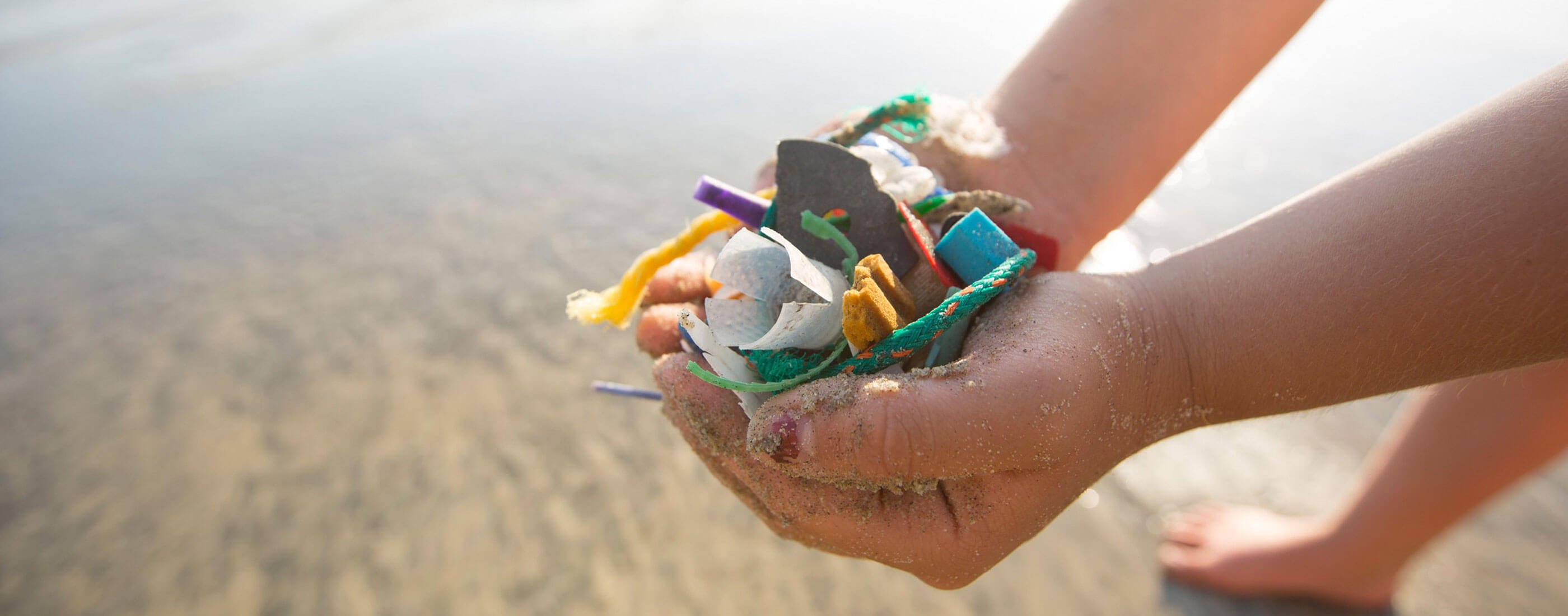
Plastic Reduction
Over 370 Plastic Pollution Victories Since 2005
Since 2005, we have achieved hundreds of victories to stop the flow of plastics into our environment, but these victories do not come easy. So how exactly do these plastic reduction policies, laws and bills get passed and implemented?
Watch this video to learn more about our work to stop plastic pollution at its source!
Single-Use Plastics are Poisoning Our Ocean, Planet, and Us
Plastics are all around us and a part of our everyday lives. They're also increasingly inside us – microplastics have been found in our lungs, blood and throughout the human body. An estimated 11 million tons of plastic enter ocean waters every year, which is the equivalent of a trash truck dumping a full load of plastics into our ocean every minute of every day of the year. At this rate, the amount of plastic pollution entering our ocean is currently doubling every six years. If these trends continue, the total weight of plastic pollution in our ocean could exceed the total weight of all fish in the ocean by 2050.
Recycling is not the answer: Only about 5% of U.S. plastic waste gets recycled, and only 10% of the plastic ever made has been recycled. Surfrider instead advocates for reuse and the use of truly recyclable material in policy and as part of our Ocean Friendly Restaurant program. Industry "solutions" such as chemical or "advanced" recycling are only ploys to justify the continued production of plastic, and are championed by the fossil fuel industry and their lobbyists, not independent scientists.
Bioplastics create the illusion of a solution while actually adding to the problem. Surfrider discourages the use of bioplastics and offers several resources for those seeking more information and truly sustainable alternatives on our Bioplastics Facts & Resources page.
If your bathtub is overflowing, what’s the first thing you do? You do not grab a towel or a mop – you turn off the tap! We cannot clean up our way out of this crisis until we stop the deluge of plastic pollution into our ocean. We must stop the current flow of plastic pollution by addressing plastic pollution at the source. This includes banning unnecessary single-use plastics, advocating for better product alternatives, and switching to reusables for our everyday needs.
We encourage individuals, businesses, and governments to protect our ocean, waves, and beaches by supporting legislative policies and innovative private sector solutions that move us away from unnecessary single-use plastics.
Surfrider chapters and clubs lead hundreds of cleanups every year, removing thousands of pounds of trash before it enters our ocean, and collecting data to inform our efforts to make the legislative changes needed to hold plastic producers and polluters accountable.
Additionally, the production of plastic, a fossil-fuel product, contributes significantly to climate change and adverse human health impacts through both the raw materials and the manufacturing processes used to make it.
Common Plastic Pollution Sources
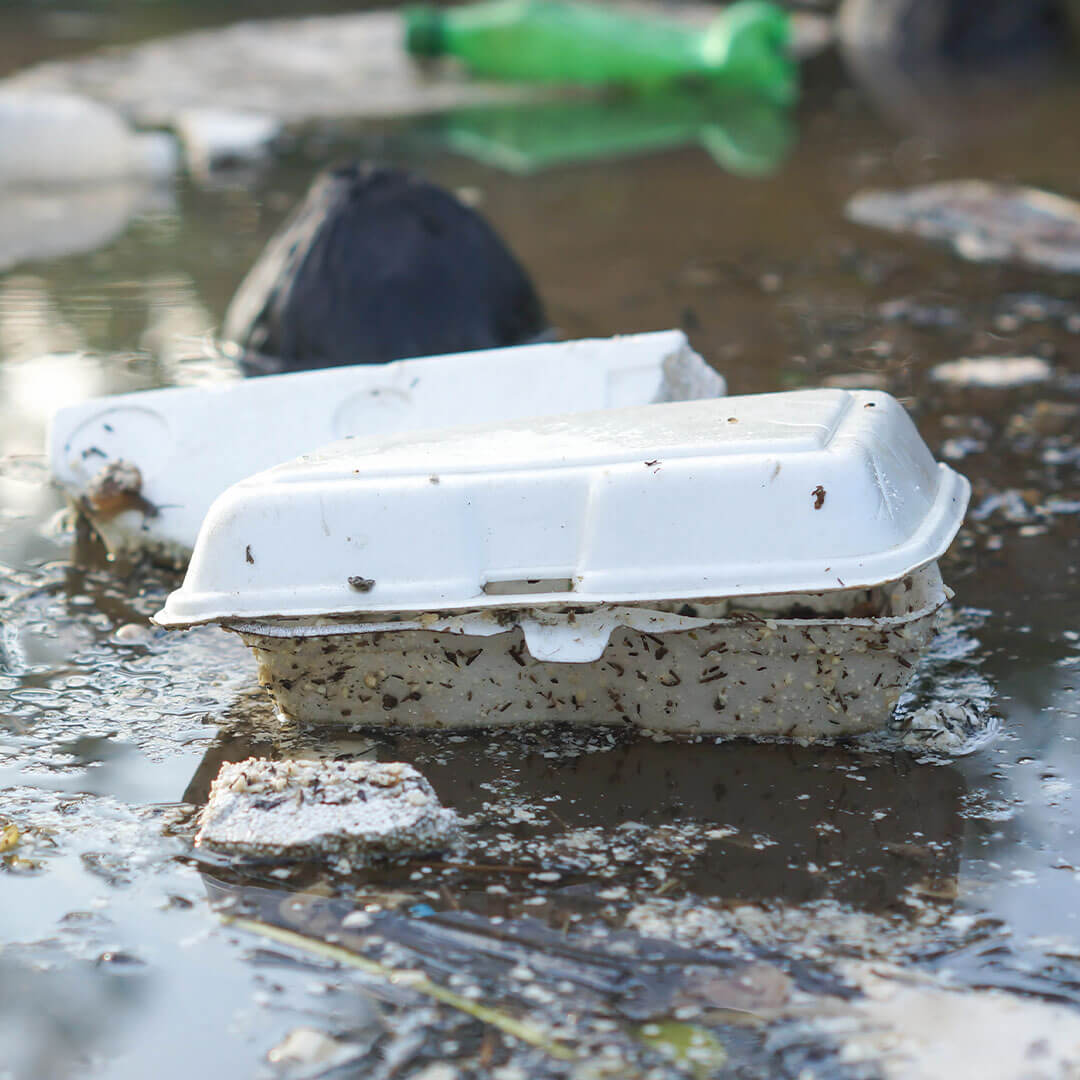
Foam
Expanded polystyrene foam products, including styrofoam foodware, easily break into small pieces that litter the beach, poison marine species when ingested, and release toxic chemicals into your hot takeout food. Find more sustainable alternatives to plastic foodware in the Ocean Friendly Foodware Guide, and encourage your favorite restaurants and takeout spots to join our community of Ocean Friendly Restaurants.
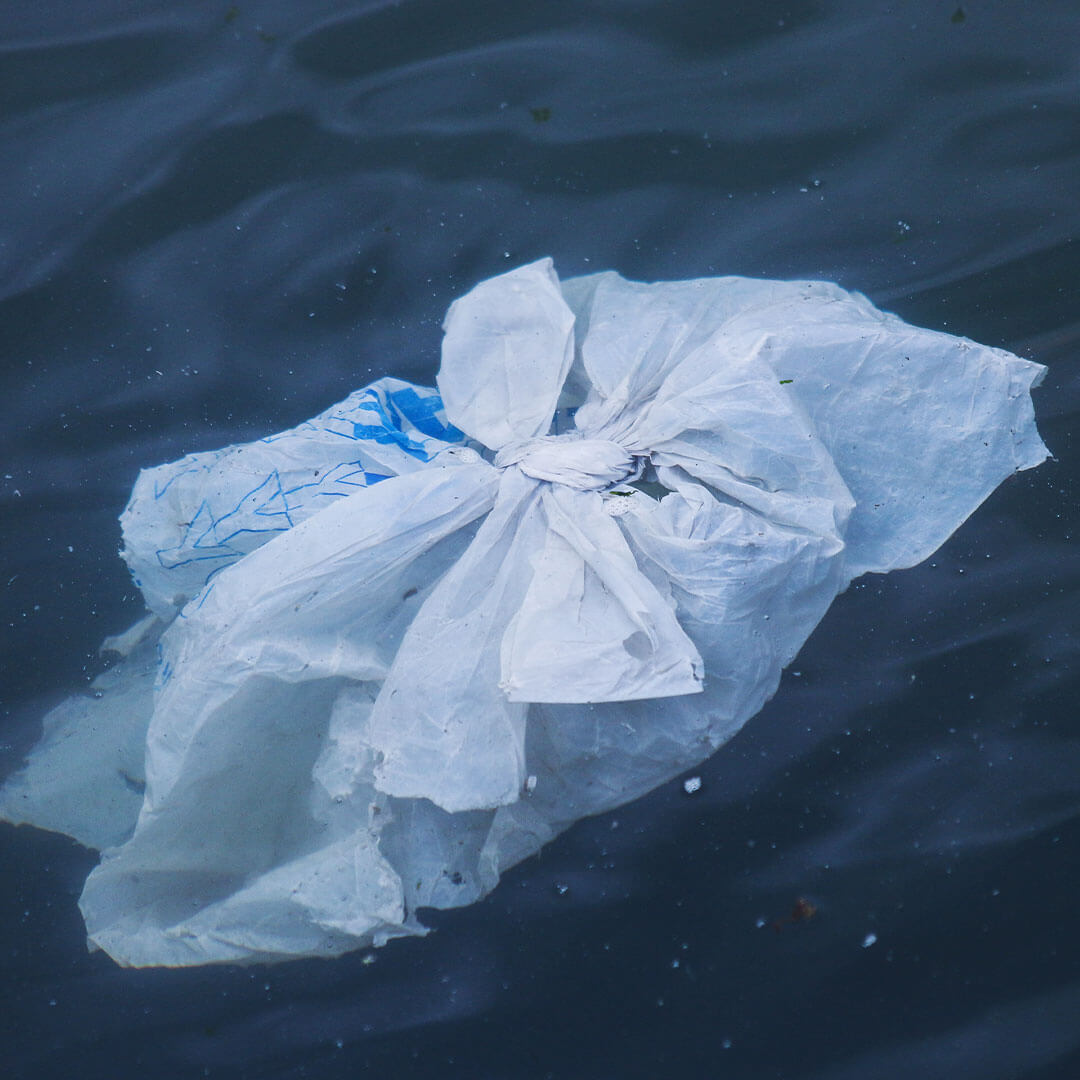
Bags
The 100 billion single-use bags used per year in the U.S. are easily replaceable with reusable bags and biodegradable paper bags. Currently, over 500 local and state bag laws have been adopted in the U.S. Want to make a positive impact in your community? Check out our Plastic Bag Law Activist Toolkit for a step-by-step guide.
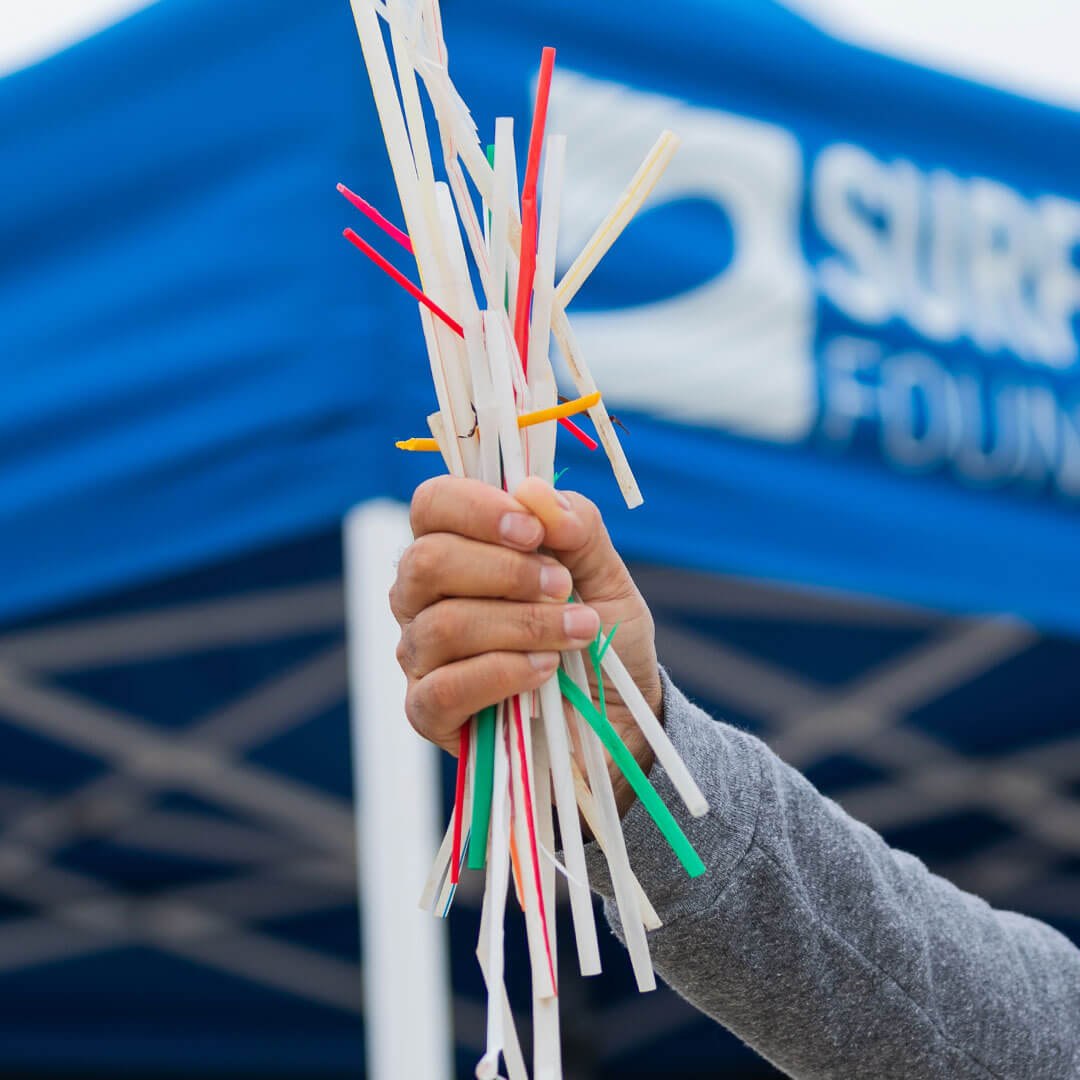
Straws
Plastic straw litter can be deadly to marine life, like blocking the airway of a turtle. Choose to go strawless unless you need one — or opt for a reusable one instead. Likewise, plastic foodware comprises much of the litter collected in our beach cleanups. When reusables are not an option, we suggest seeking out products that are not artificial or fossil fuel-based. Naturally occurring materials, such as paper, bamboo, wood, hay, and seaweed, for example, do not require industrial composting facilities for disposal. For more information, see our Foodware Guide.
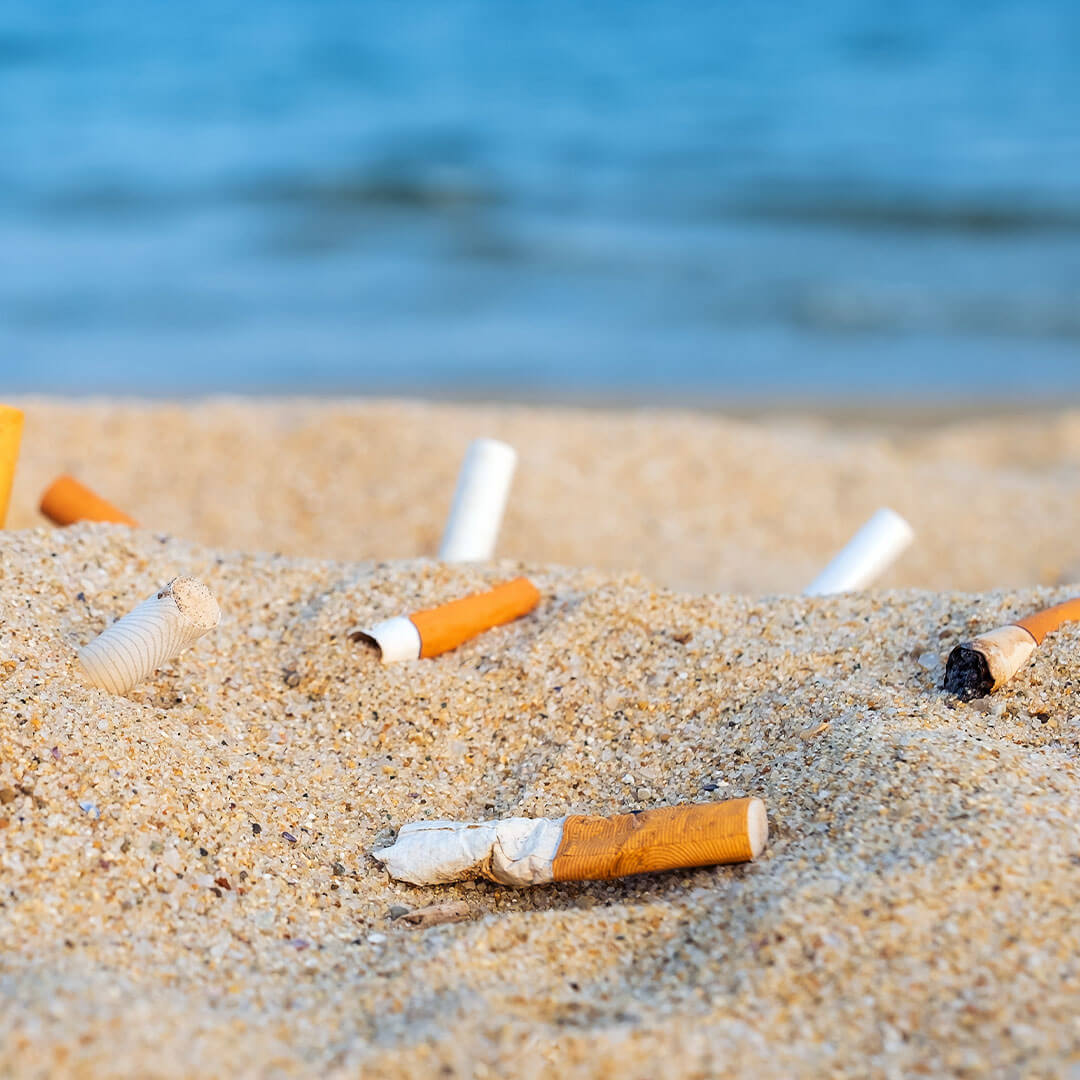
Butts
Hold On To Your Butt! Cigarette butts account for approximately one in every five items collected during beach cleanups, and are so toxic that a single cigarette butt per liter of ocean water is lethal to marine life. Surfrider’s local Hold Onto Your Butt programs provide ways to actively engage in solutions in your community.
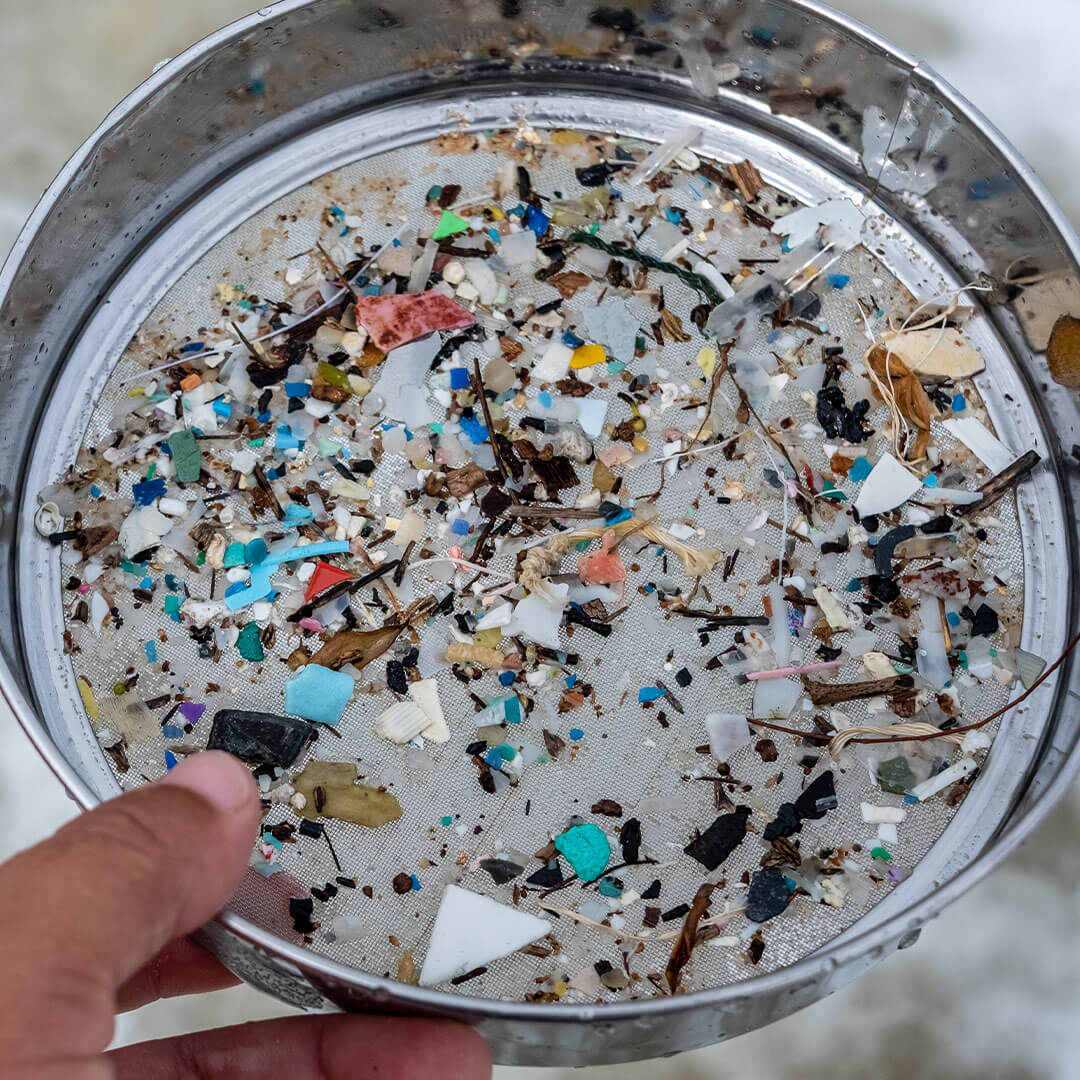
Microplastics
From microbeads to plastic fragments to microfibers, these pervasive forms of plastic are found from the highest mountain peaks to the deepest parts of the ocean, including in the stomachs of fish, which bioaccumulate up the food chain. So that yummy ahi roll at your favorite sushi spot has exponentially more toxic plastic chemicals in its body than a sardine! Solving the microplastics problem requires reducing plastic production.
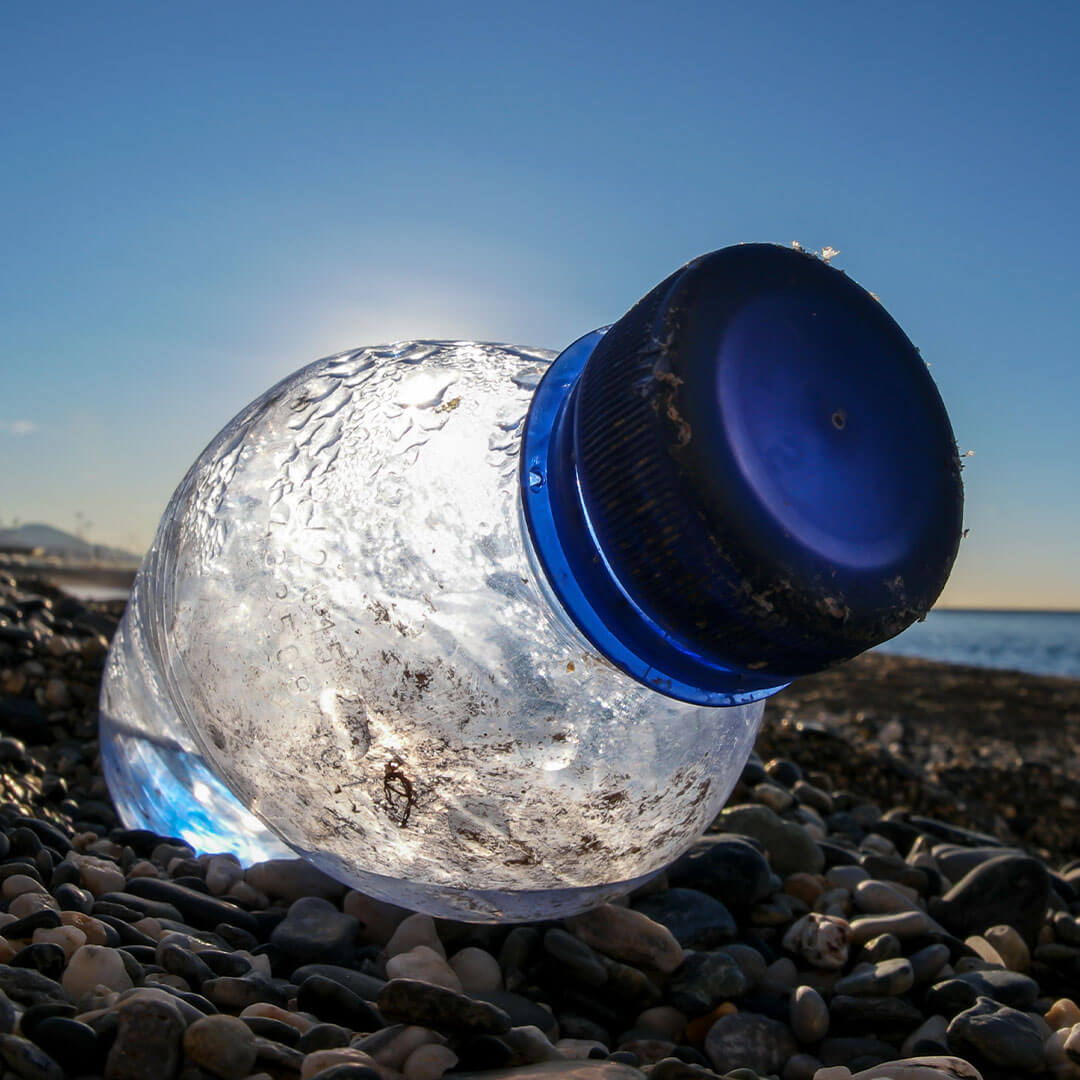
Bottles
People who drink out of single-use water bottles that have been heated by the sun are exposed to chemical leaching of BPA and phthalates into the water, which has been linked to problems with fertility, fetal development, metabolism, obesity, and even cancer. Choosing reusable bottles and more sustainable alternatives like glass and aluminum is not only better for the environment, it's better for your own health.
Visit our beach cleanup database to view more common sources of plastic pollution.
Our Impact
Surfrider Foundation has been tackling plastic pollution head on for over a decade.
3K+
Beach Cleanups To Date
1M+
Pounds Of Trash Removed
130K+
Volunteers Engaged
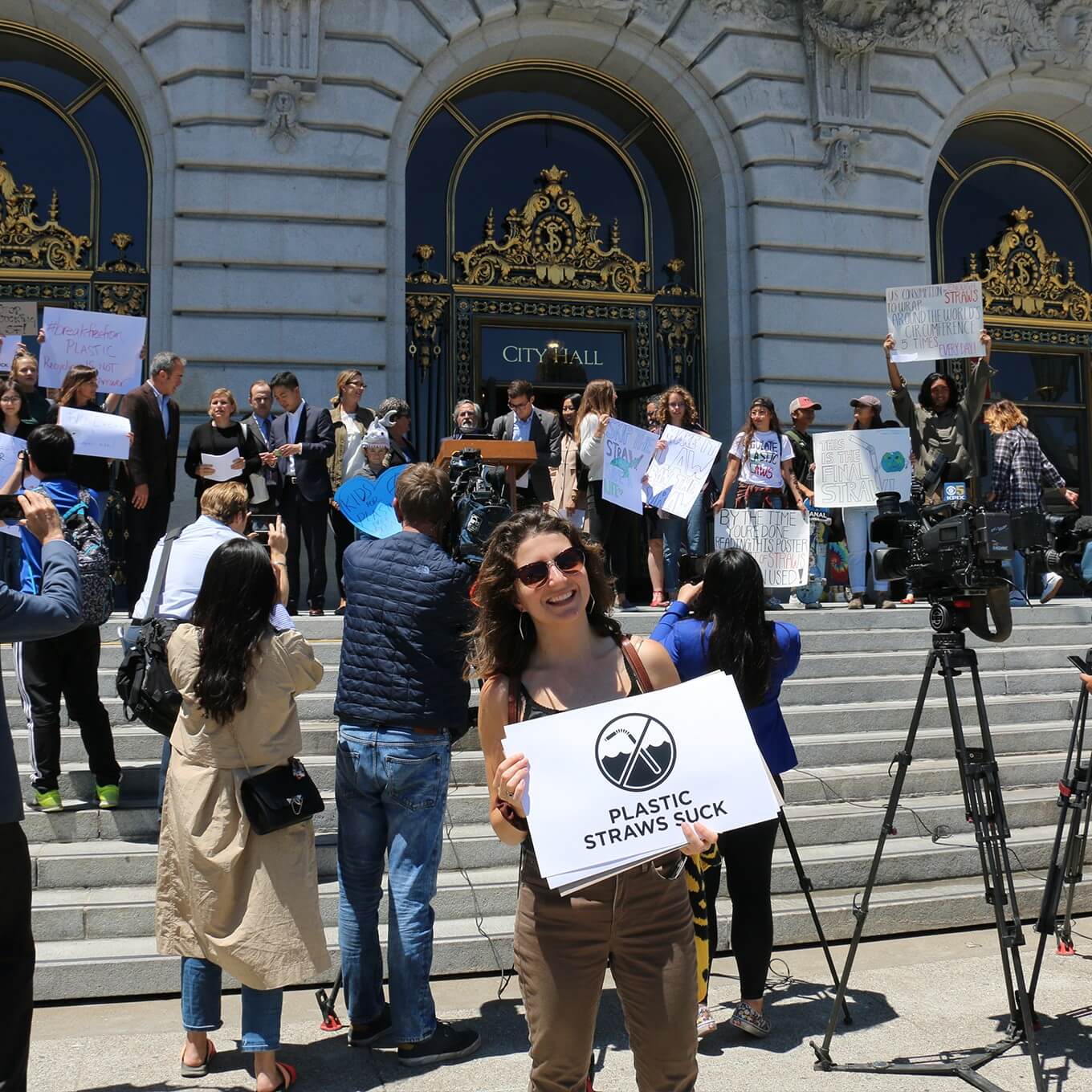
Rise Above Plastics
Rise Above Plastics is Surfrider’s education and outreach initiative designed to eliminate the impacts of plastics in the marine environment by raising awareness about the dangers of plastic pollution and advocating for solutions that reduce single-use plastics.
Beach Cleanups
The national cleanup program tackles the ocean litter issue – primarily caused by plastic pollution – through data collection, community science, and campaign support. We all have a part to play in the solution, and only together we can restore our coastlines, one beach at a time.
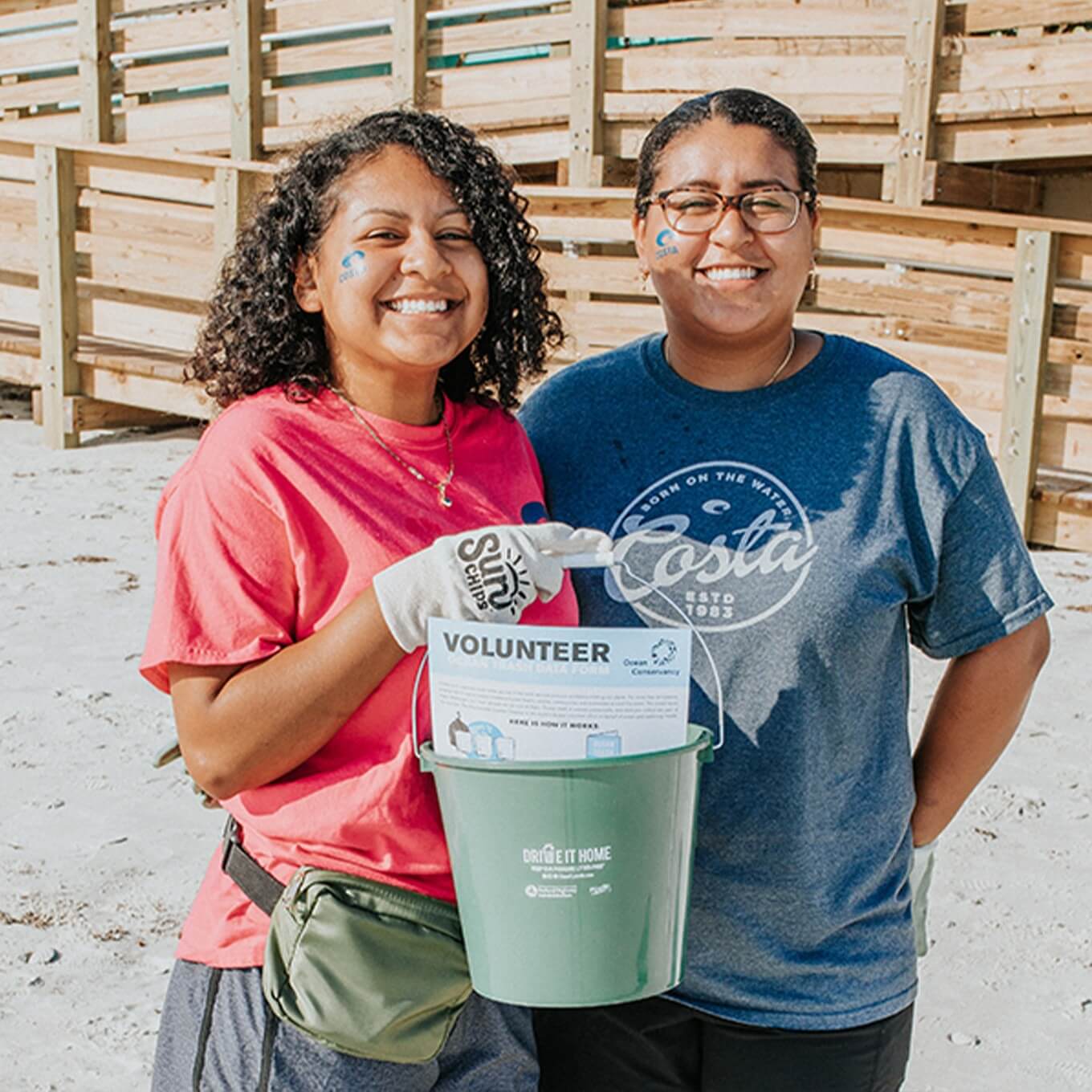
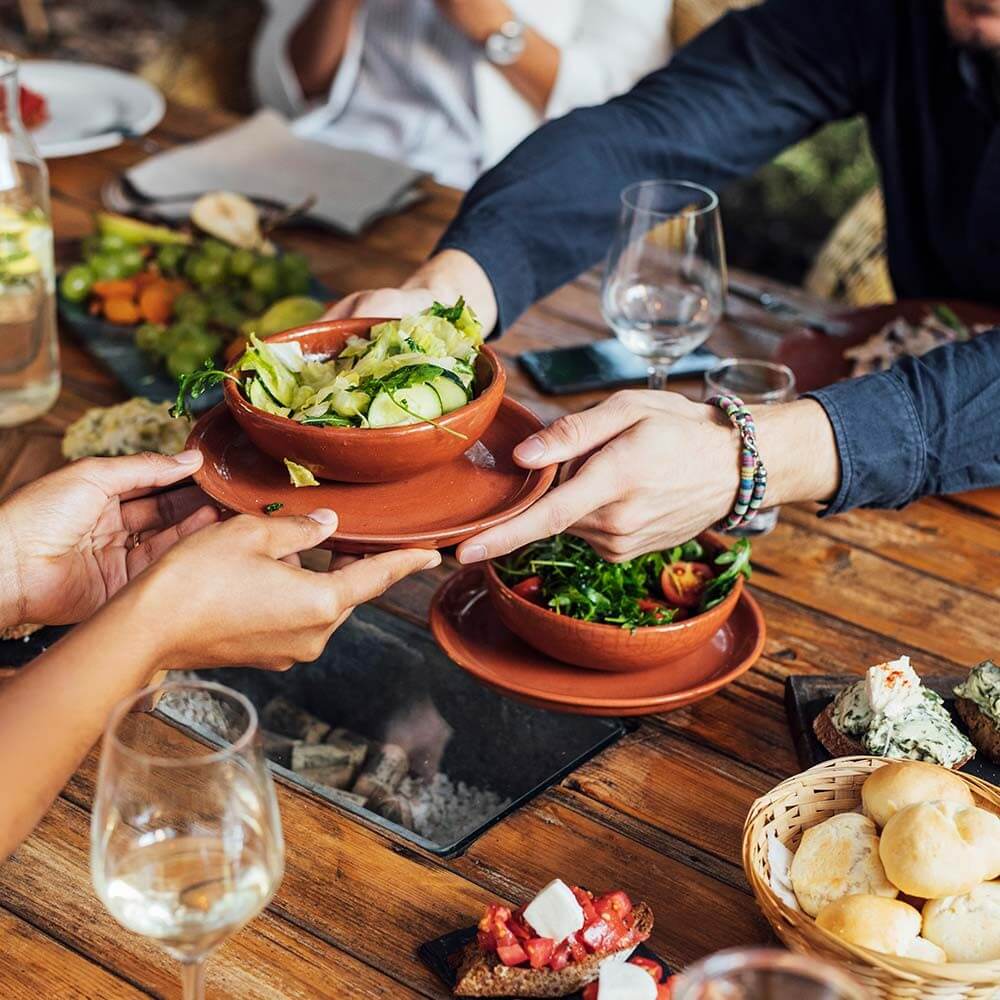
Ocean Friendly Restaurants
Surfrider’s Ocean Friendly Restaurants program recognizes restaurants that are committed to eliminating the use of single-use plastics in their day-to-day operations and offers a simple, straightforward framework to help them make sustainable choices for the ocean. We’re building an inclusive community of eco-conscious restaurants, activists, and patrons that we can promote, support, and lift up as examples of success to influence plastic reduction legislation. The larger we grow our network of Ocean Friendly leaders, the more mainstream the concept of plastic-free becomes.

Beach Cleanups
The national cleanup program tackles the ocean litter issue - primarily caused by plastic pollution - through data collection, citizen science, and campaign support. We are all part of the solution and together we can restore our coastlines, one beach at a time.
Ocean Friendly Hotels
Surfrider’s Ocean Friendly Hotels Program helps hotels reduce single-use plastic and make more sustainable choices for the ocean. The result is a community of like-minded hotels that we can promote, support, and lift up as examples of success to influence behavior change and pass plastic reduction legislation.

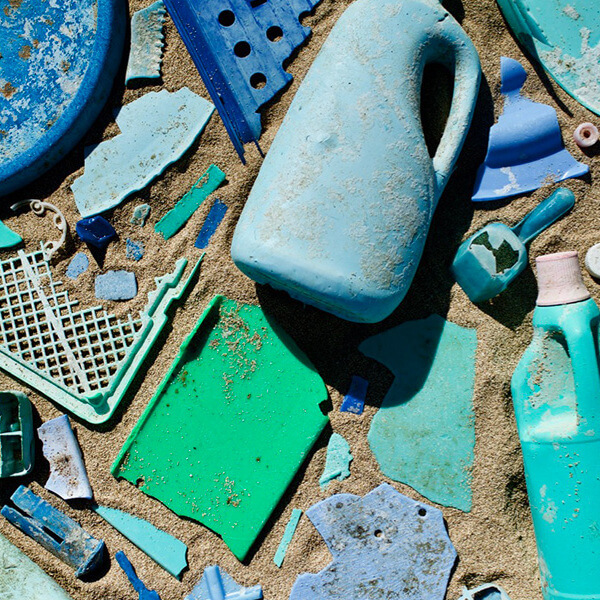
Plastic Policy
The Surfrider Foundation has successfully helped pass legislation to reduce plastic pollution at the local, state, and national levels for over a decade. We’ve been tirelessly pushing for legislation that will minimize plastic’s harmful impacts on our environment and communities.
Ways To Get Involved
Volunteer
Join our network and help us tackle the issues that face our ocean, waves and beaches.


